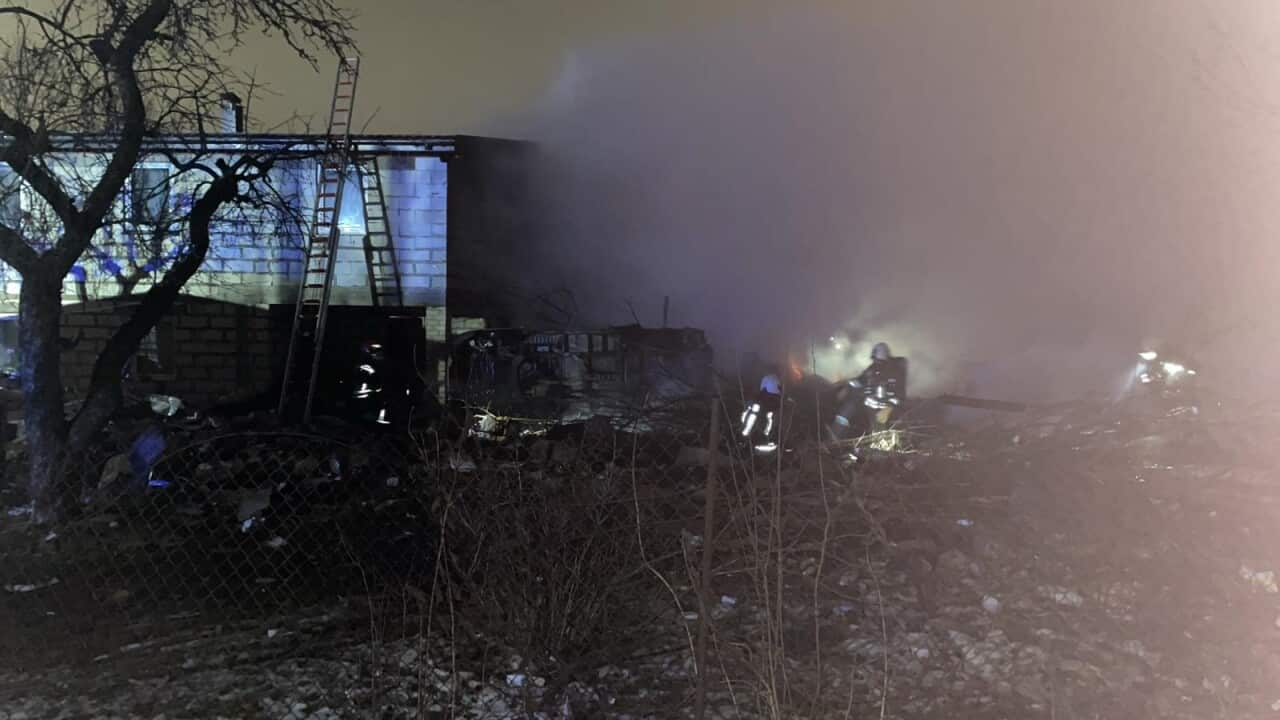TRANSCRIPT
Shortly after 3am in Germany, a Boeing 737 departed from an international shipping hub at Leipzig Airport in Germany.
Around an hour and a half later the aircraft crashed, killing the jet's Spanish pilot and injuring other crew members.
Logistics company DHL says the crash occurred as the plane was making an emergency landing near Vilnius airport in Lithuania.
So far, no-one knows why.
A local resident says she saw the disaster unfold.
"As I was going to work, I heard a very loud noise. At first I thought the sound was some kind of missile. I mean, because it was so loud, I slowed down the car. And just straight over my head, over my car... I am 170cm tall, so if you put me on my car – that would be the height that the plane flew over me."
She says she saw an explosion after the plane hit the ground which authorities say sparked a fire as it skidded into a house.
They say the 12 people at the house were safely evacuated.
"There was a big shock, of course. Because it's not every day that such things happen. As I’ve already said, I was really scared that these were rockets or missiles. Because given the current situation, well, of course, I've had all sorts of thoughts."
Lithuanian police say investigators are speaking to the surviving crew members.
The General Commissioner of the Lithuanian Police, Arūnas Paulauskas, is cautioning against speculation.
"It is most likely either a technical failure or human error. But we are not aviation experts here to discuss this matter in such detail. The aircraft was simply landing and did not reach the runway. So, for now, those are the factual circumstances."
But Germany's foreign minister, Annalena Baerbock has suggested the incident could be linked to Russian sabotage.
Lithuania, Germany and Spain say they will investigate the cause of the crash.
Ms Baerbock says the investigation should examine all possibilities.
"Together with our Lithuanian and Spanish partners, we must now seriously ask ourselves whether this was an accident or after last week, another hybrid incident. It shows what volatile times we're currently living in, even in the centre of Europe."
Western security officials suspect Russian intelligence is carrying out acts of sabotage in retaliation for their nations' support for Ukraine — including disinformation, arson attacks, and by putting incendiary devices in packages on cargo planes.
In July, one caught fire at a courier hub in Germany and another ignited in a warehouse in England.
Ms Baerbock says those attacks, as well as the recent unexplained severing of two fibre-optic cables in the Baltic Sea, justify the suspicion around the incident.
"We have recently seen several hybrid attacks in Europe on individuals, on infrastructure, be it underwater or hard infrastructures in European countries. And, as I said, it makes it clear how important it is now not just to investigate, but how important it is to protect our critical infrastructure."
DHL has also started an investigation into what happened.













